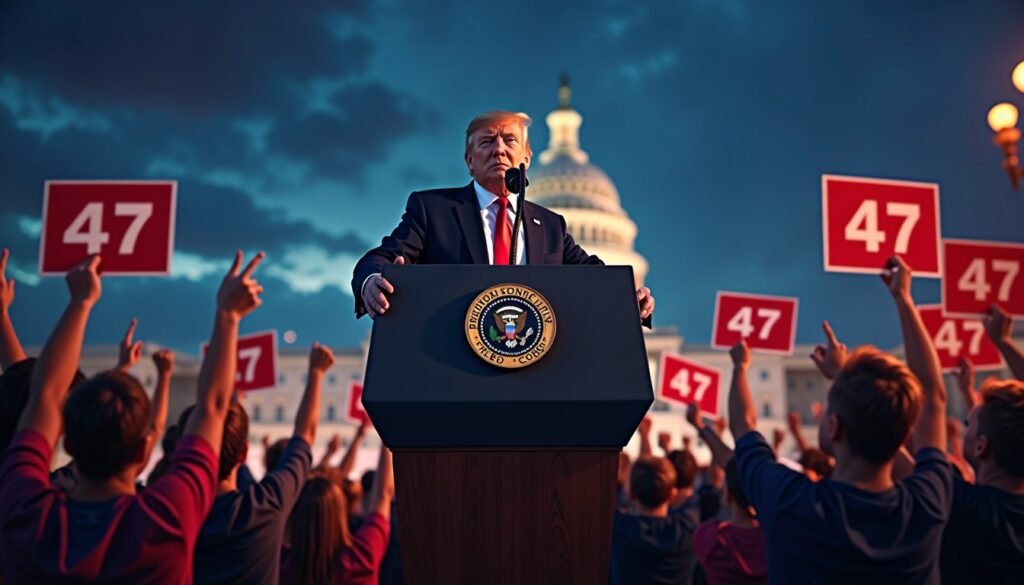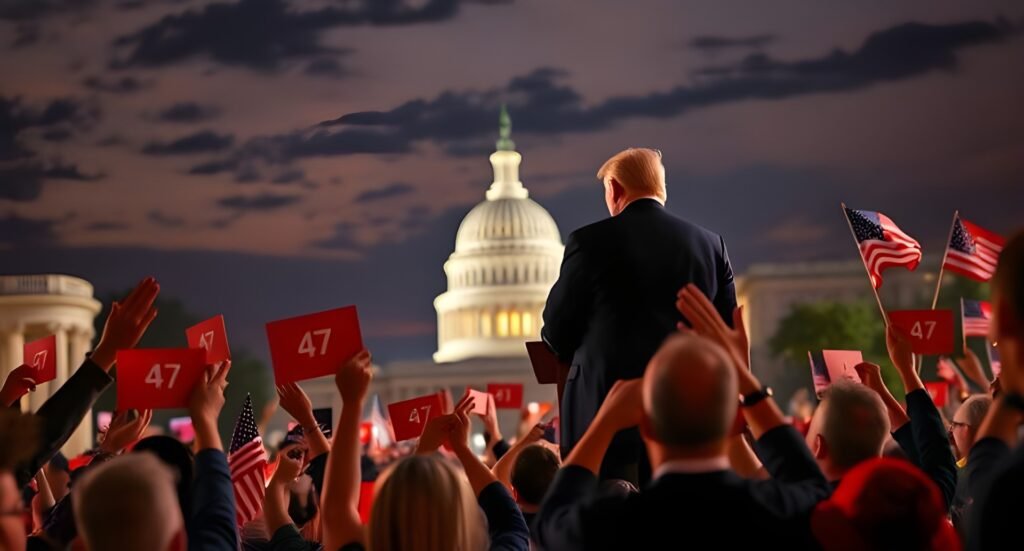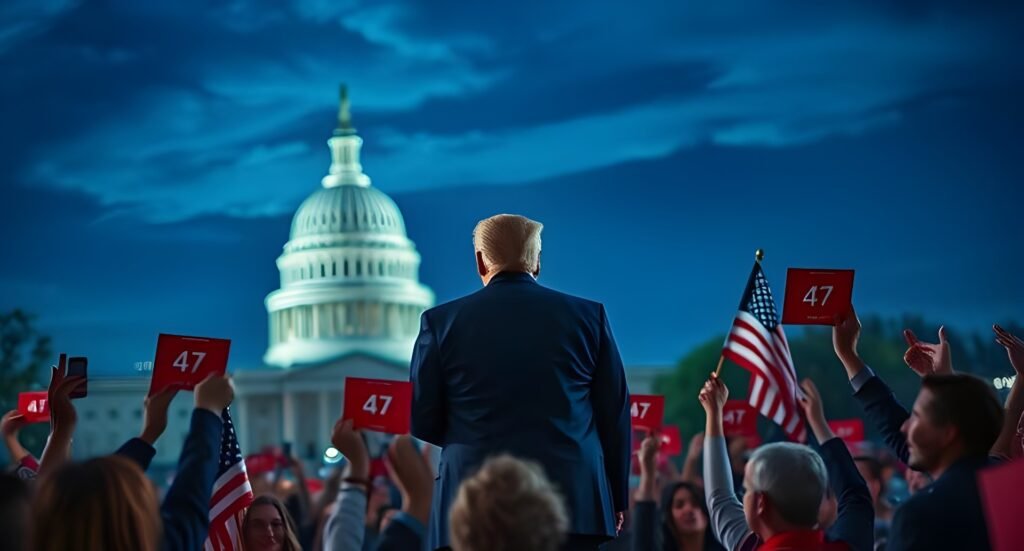|
Getting your Trinity Audio player ready...
|
The 2024 U.S. presidential election is now etched in history as a seismic moment for American democracy. Donald Trump’s return to the White House, after defeating Vice President Kamala Harris, unfolded amid razor-thin margins in swing states and widespread allegations of irregularities. The election has reignited debates over the integrity of democracy, the normalization of political corruption, and the persistent influence of disinformation.
The Electoral Outcome: A Coalition Forged in Discontent
Donald Trump secured the presidency with 312 Electoral College votes to Kamala Harris’ 226, flipping pivotal battleground states like Arizona, Georgia, Michigan, Nevada, Pennsylvania, and Wisconsin. His victory was powered by a coalition that included white working-class voters, Latino men (46% support—a historic high for Republicans), and younger male voters who overwhelmingly favored Trump. While the popular vote margin was narrow—77.3 million votes to Harris’ 75 million—Trump’s campaign masterfully capitalized on frustrations over inflation, immigration, and economic stagnation, issues Harris struggled to address convincingly despite tangible improvements under the Biden administration.
The result confounded pre-election polls, which underestimated Trump’s appeal, repeating a pattern seen since 2016. Late-deciding voters overwhelmingly swung toward Trump, while Democratic turnout dropped by 10 million compared to 2020—notably in blue strongholds like New York and Massachusetts. This drop reflected growing voter apathy in key demographics that had previously rallied behind Democratic candidates.

Allegations of Manipulation: Suspicious Patterns and Musk’s Role
Controversy erupted soon after Trump’s victory as watchdog groups flagged irregularities in key states. Nevada’s Clark County drew particular attention due to a sharp discrepancy in Trump’s performance compared to other Republican candidates. Meanwhile, Harris’ underperformance relative to Democratic Senate candidates in swing states prompted allegations of targeted voter suppression.
Trump’s own rhetoric added fuel to the fire. At a rally in Pennsylvania, he praised Elon Musk’s “insight” into voting systems, a comment interpreted by critics as a veiled admission of tampering. Musk’s platform, X, played a central role in spreading unverified claims of fraud, echoing the disinformation campaigns of 2020.
Legal Challenges and Constitutional Questions
Just days before Trump’s inauguration, Special Counsel Jack Smith released a scathing report concluding that Trump’s actions surrounding the 2020 election would have likely resulted in conviction had he not been re-elected. The 137-page document detailed attempts to retain power unlawfully, including pressuring state officials, inciting the Capitol riot, and disseminating false claims of voter fraud. However, Trump’s re-election granted him immunity from prosecution under federal law, leaving critics decrying a justice system unable to hold a sitting president accountable.

Disinformation and Public Trust
The 2024 election underscored the growing threat of disinformation. Trump’s campaign revived debunked claims of fraudulent mail-in ballots and noncitizen voting, which proliferated across social media platforms, amplified by Musk’s X. In Pennsylvania, for instance, Trump cited an investigation into flagged registration forms as evidence of fraud, even after officials confirmed safeguards had prevented any irregularities.
Election analysts described the environment as a “firehose of misinformation,” with fact-checking efforts overwhelmed by the speed and volume of false narratives. Meanwhile, Harris’ attempts to frame Trump as a threat to democracy failed to resonate with voters, as Republicans successfully portrayed her as authoritarian and out of touch.
The Historical Significance
The 2024 election reflects a democracy deeply divided yet alarmingly tolerant of ethical lapses. Billionaires and corporations poured over $1 billion into campaigns, a phenomenon normalized by Supreme Court rulings like Citizens United. Trump’s pivot away from anti-corporate rhetoric, exemplified by his cozy relationship with fossil fuel donors, epitomized this era of pay-to-play politics.
Harris’ defeat also highlighted persistent gender biases in American politics. Although she garnered significant support among women voters, skepticism about her leadership and Biden’s delayed withdrawal from the race hindered her ability to define her campaign effectively. The outcome has been interpreted by many as a sign that scandal and controversy are no longer disqualifying traits for political leaders.
A Nation at a Crossroads
The 2024 presidential election was less a mandate than a reflection of America’s precarious democratic state. It revealed the fragility of electoral norms, the power of disinformation, and the limitations of a legal system ill-prepared to confront executive overreach. As Trump’s administration begins with narrow Republican control of Congress, the nation faces critical questions about its future. Will Trump’s leadership further divide an already polarized country, or will it prompt a reckoning that strengthens democratic institutions?
One thing is certain: the 2024 election will be remembered not as a triumph of ideals but as a pivotal moment in the ongoing struggle to define the future of American democracy.









